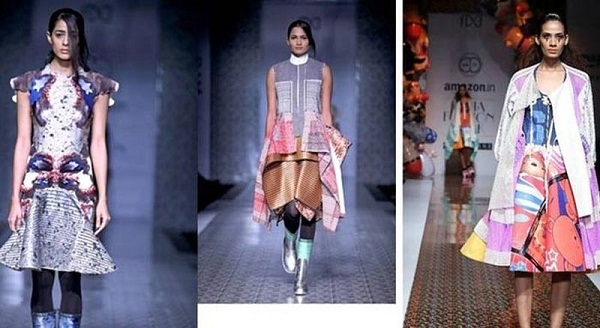
Ellen McArthur Foundation estimates on an average, Americans throws away 37 kg pounds of clothes every year. Around 85 per cent of the garments produced in the country are either thrown away in landfills, or burned causing massive air pollution. Around 95 per cent of total discarded clothing and textile waste can be repurposed or recycled. However, the fashion industry fails to achieve this.
The problem has been compounded by the disposable nature of fast fashion. From 2000 to 2015, global clothing production doubled, says WRAP, while the number of times people wore a garment item fell by 36 per cent as big brands launched hundreds of low-priced affordable garments every year.
Upcycles gives new life to discarded garments
Rising consumer awareness has led to brands and companies embracing the circular economy concept. Upcyling has gained newfound importance with the process giving discarded garments new life by fixing errors. Upcycling helps consumers reuse garments creatively and repair pre-owned clothes. Upcycled garments are more environment-friendly as they consume less energy, water and chemicals. They also release fewer gas emissions compared to recycled garments. Various post-consumer upcycling initiatives and take-back schemes have been launched by international brands.
The increase in sustainable practices is encouraging brands and retailers to introduce new upcycling methods. Brands like Re/Done; Urban Outfitters, Asos and Zara have launched upcycling initiatives.
Brand launch initiatives galore
Brands are embracing upcycling initiatives with renewed enthusiasm and vigor. For instance, sustainable fashion brand Doodlage launched a 100 per cent upcycled or recycled collection so has other brands including Bengaluru-based ethical fashion brand Pomogrenade, Gujarat-based label RaasLeela, The Second Life, Patch over Patch, etc.
There is also an increase in the number of knowledge sharing platforms addressing the sustainable fashion needs. Latest Apparel Sourcing Week 2022, in Bengaluru dug deeper into upcycling by focusing on issues like using fashion deadstock to reduce waste, introduce multi-stakeholder marketplaces to address the issue, increase transparency between stakeholders, etc. Realizing the value of sustainability in the new informed world, consumers in India are opting to buy from eco-friendly and sustainable fashion brands.
Emergence of new brands
Also, many new sustainable fashion brands have come up. Sustainable brand The Summer House’s platform Relove provides customers an option to buy and sell verified secondhand garments, giving more scope to upcycling. Industry veterans like Naresh Tyagi from Aditya Birla Fashion and Retail; Kaustubh Korde from Myntra; Ruchita Chhabra from The Sourcery; Shailesh Kumar Sharma from SGS; Ajay Ravuri from Arvind; Suvidha Chopra from adidas; Prasad Pant from ZDHC; and others are setting new benchmarks by effortlessly establishing upcycling as the next big thing.












